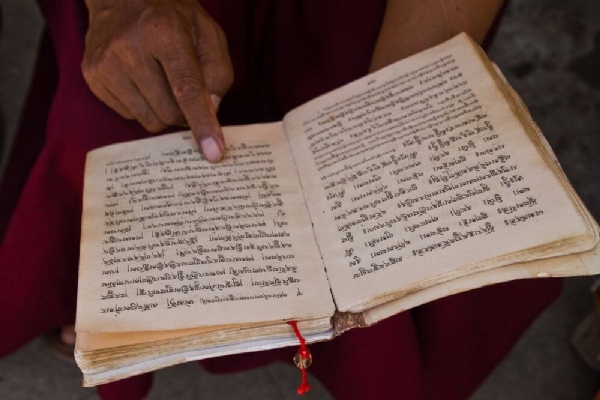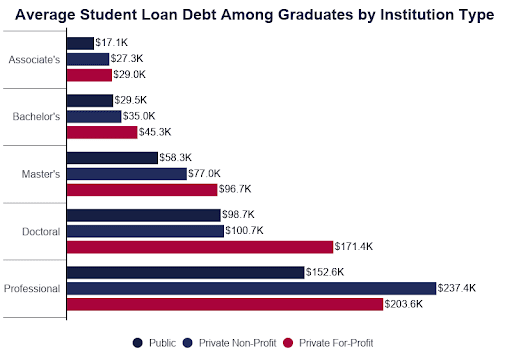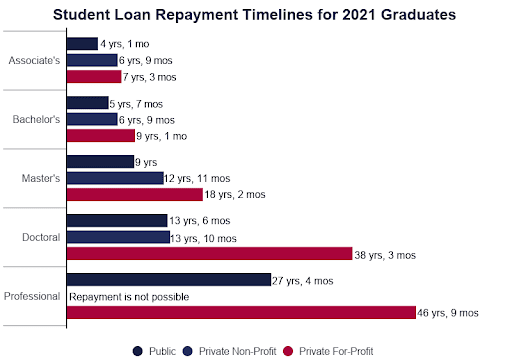Lesson from the East IX: Vidya Or Avidya - The hyperbole of education versus Knowledge
In Sanatan Dharam, One believes education or knowledge can be attained from any source even from the things that exist in nature, which too absolutely free. Just observing these with an open mind itself brings learning to oneself. This World, this Universe, Mother Earth, and all her components teach us something.
Total Views | 370
Is education or knowledge key to success?
How education turned into a business and got grabbed by capitalists?
Why are a few still paying their student debt when they are in their 60s?
The Usual Story
 At the tender age of six, his father who worked as a construction worker was crushed by a truck. His mother took up the position as a construction worker toiling 12 hours a day. He barely had resources, but he made it a point to stand first in his class and help everyone around. Helping others made him a local hero and ensured he got enough books and material to study. Ganesh believed Nature or Universe is his third teacher after his mother and father.
At the tender age of six, his father who worked as a construction worker was crushed by a truck. His mother took up the position as a construction worker toiling 12 hours a day. He barely had resources, but he made it a point to stand first in his class and help everyone around. Helping others made him a local hero and ensured he got enough books and material to study. Ganesh believed Nature or Universe is his third teacher after his mother and father.
The Sun taught him to be perseverant, rising and setting every day irrespective of the situation whilst Mother Earth taught him to be resilient and strong irrespective of how one treats her, though she treats everyone equally.
He worked hard and cleared one of the toughest entrance exams of IIT. He joined IIT Mumbai, but the Mumbai glitterati didn’t enamor him or deter him and he stood first even in IIT Mumbai with the highest CGPA.
He was picked up by an IT Global giant and was placed in California. He worked for two years and came back to a small town in Tamil Nadu. Fast forward to today, he has set up one of the biggest privately owned Data management companies in the interiors of Tamil Nadu and he now manages data for global stock exchanges sitting in the remote location of Chennai. His large institutional clients trust him implicitly and so do his employees.
He realized that it’s difficult to attract talent in the remote area of Tamil Nadu as the Youth wishes to stay in big cities, though in small holes (expensive real estate, compact flats).
Hence Ganesh established a Polytechnic IT institute that taught Data Management after Senior Secondary School at extremely low costs. These small amounts along with hostel costs were advanced as a loan that was paid back, once the student gets the job.
Most students from the local rural belt from economically weaker sections with limited means were part of the program. He could manage the best teachers at a low cost as these teachers were also given equity in the Data Management Company (alignment of interest and enhanced loyalty).
A few years back Ganesha’s business saw massive down-turn and cost pressures when the global markets crashed. But he didn’t lay off people instead he reduced his salary to Rupee One and top management took a 40% cut whilst the bottom of the pyramid remained unaffected. Two years later when there was an upswing, he compensated that 40% loss in pay as a discretionary bonus to all who had foregone their earnings. He cemented both the demand and supply sides of his business.
Due to his honesty & integrity, demand or new client acquisition was constant and from the supply side, his best educationists are able to mould young minds in the institute both emotionally and technologically.
Today after a decade of setting up the data management company, Ganesh has changed the lives of twenty thousand families. A small number from the Indian context yet a welcome change and today Ganesha is being honored by the Governor.
Amongst all species that exist on the planet, only humans have the consciousness and mind that enables one to decide, make choices, and use discretion.
Rest all creatures exist only for survival and pleasure, whilst humans are born with infinite potential and the choices one makes helps one to shape one’s future.
Who enables one to make the right choices, who gives the direction, who gives the guidance?
Some call it a teacher, some call it a mentor, some call it an educator, but Sanatan Dharam calls it GURU. The guru is the one who enables one to see the light when there is pitch darkness.
The word Guru comes from two words "Gu means ignorance or darkness, and Ru means the dispeller or the dissipater.
In Sanatan Dharam, the importance of the Guru is Supreme as Guru provides the wisdom of Paramatma and shows the path of enlightenment away from only material things.
In an earlier note Ashram shorturl.at/bet37 spoke, about the place where education by such a Guru is imparted and how dedication, devotion, and surrender are a must to learn and to gain wisdom.
However, in the West, Schools and education have become a mall with bells and whistles, amenities, and luxuries to attract the attention of students, thus making the education super-expensive.
The expensive education sows the seeds of greed and perpetuates the desire of winning in monetary terms at all costs. This unfortunately leads to sometimes overlooking the interests of others and sometimes overlooking the risks involved.
Students borrow enormous amounts of money for education to be part of this Super-expensive system as they believe that's the only ticket to arrive at the show, saddled on Ferrari and Bugatti.
Most borrow but few end up with fancy jobs, for the rest, it's a choice between the devil or the deep sea. One who gets the fancy jobs works with a single-minded focus to maximize bonuses at the earliest, compromising every ethic, every morality sometimes humanity in totality.
Another choice is to keep paying the education loan, sometimes till one retires. Amongst all the loans, only the Education loan cannot be discharged under bankruptcy. In April 2022 clarifications came, yet filing for bankruptcy under student loans is the most tedious task in the United States.
The below-drawn charts reflect the seriousness of the problem
In the United State of America, an average student loan is paid back in 19 years, whilst in India, it’s less than two years (~ 21 months).
The situation is so grim, that in some cases it’s next to impossible to pay off student debt throughout one’s life.


The question one should ask here is Capitalism turning Education into a Curse?
In Sanatan Dharam, One believes education or knowledge can be attained from any source even from the things that exist in nature, which too absolutely free. Just observing these with an open mind itself brings learning to oneself.
This World, this Universe, Mother Earth, and all her components teach us something.
1. Mother Earth – She holds and takes care of everyone, irrespective of species, caste, color, creed, religion, or faith, essentially everyone. She doesn’t differentiate. She gives equal rights and equal support to everyone.
Mother Earth thus teaches us that one should accept everyone the way he or she is irrespective of background. If one is unbiased in one’s perspective one doesn’t feel the threat or the anger and proceeds in life with equanimity.
2. Air is the second teacher. Air remains the same irrespective of the good or bad. Similarly one should remain unaffected by good or bad, whether in good or bad circumstances, situations or conditions.
3. Sky is the third teacher. Everything on this earth and universe is interrelated and is one. There is Jiva-Atma (soul) in every life form including humans, animals, plants, rivers, mountains, metals, earth, stones, etc. Everything created by Mother Nature has life and thus has a soul inside it. The souls of various life forms are interconnected by the Param-Atma (Supreme Soul, the all-pervading one), similar to the sky. It’s there everywhere.
Cloud may hide the sky for some time, but it exists as the Jiva-Atma exists within everyone, and that is a part of the Param-Atma. Like the soul, the sky remains unchanged, unaltered, and endless. Thus one should think about soul and inner consciousness like Sky rather than chasing worldly pleasures like clouds that come and go.
4. Fire – Fire consumes everything whether pious or unholy. After consumption, it sanctifies everything into holy ash, neither good nor bad exists then.
Fire teaches humans that one should make one's inner self so strong that anything or anyone that comes in contact with oneself should get sanctified leading to the emergence of pure thoughts and consequently to pure action.
5. Sun – The Sun and its light remain the same. When it’s reflected by the moon it is perceived as calm, when it’s direct, it’s hard. The shadow it makes depends upon the thing blocking the light.
Similarly, the almighty (Param-atma) wishes well for everyone and is the same for everyone, however, people think it differently, depending on their beliefs, experiences, and maturity, like the shadow. Sun also teaches one how to be disciplined & consistent under every circumstance.
6. Ocean – The Ocean is vast. Despite that, it never crosses or violates its boundaries or limits, similarly intelligent or wise man never crosses his or her moral, ethical, or kosher limits.
7. Moon – The moon does not have its light, but receives the light from Sun and reflects on to everyone. It brightens and illuminates the night.
Similarly, humans have nothing of their own, they are and receive everything from the almighty (Param-Atma), all-pervading one, and their job in their lifetime is to reflect and brighten moments, months, or lives of every creature - human or non-human on this planet.
8. Water – Water quenches the thirst of everyone, humans, birds, animals, plants, trees, everyone. It keeps them alive. Still, it stays at the lowest location.
Similarly, the wise and intelligent person takes the most inconsequential, unimportant, insignificant place but always enables and assists everyone, with no expectations in return.
The characteristics mentioned above are virtues and whether capitalist, socialist, or communist everyone is looking for people with virtues. If one is dedicated and virtuous, Skills can be learned in the job, but paying a price that forces one to spoil one's Karma or one’s Dharma is surely not wise.
How education turned into a business and got grabbed by capitalists?
Why are a few still paying their student debt when they are in their 60s?
The Usual Story
Tim Timothy recently filed for bankruptcy for the logistics business that he was running for the last twelve months. As a child, he remembered lush green fields and golden crops that emerged every year. His father was a farmer in Luckenbach, Texas, a South Central State in the United States of America. He was a simple hard-working man, who worked all day with animals in the field and drank beer at night, and loved to listen to Countryside Luckenbach music. Tim had other plans and he always dreamt of driving fast cars and was mesmerized by the Manhattan life of the rich and famous.

He watched Wolf of Wall Street more than fifty times and he believed Wall Street was the ticket to his Seventh Heaven.
He studied as well as participate in sports so that he can get into a good school. After finishing high school, he moved out of Texas and worked part-time as well as took education loans to complete higher education and a Master’s degree. Markets were tepid and he could not get a job on Wall Street. Riddled with a debt of over 85000 USD, and limited options in hand he finally took a position as a branch manager in a local logistics firm.
He pursued and pursued and after ten months, finally, he was ready to make it big on Wall Street. Tim joined as a Debt dealer and made a killing for himself as interest rates were declining. His reputation as a charmer and sharp with numbers spread fast. A global bank picked him as a Prop debt dealer. He was enamored by Lamborghinis, Ferrari, and Versace. His income rose and so did his expenses and he borrowed even more backed by his rising income.
His managers trusted his capability to take bets. Life throws opportunities as well as setbacks. Once he took a bet beyond the limits, charming his way through the risk team, in hope of making mega bonuses and incentives. Unfortunately, markets turned unfavorable. Due to leveraged bets, single-day losses ran 50 times the yearly permissible limits.
One employee's greed shook the system and the yearly profits of the bank were wiped out. Heads were rolled and so was he back on the street from Wall Street with all his stuff.
With no takers for another chance, he started his logistics business twelve months back and today he filed for bankruptcy.
The Indigenous Story
Ganesha P. was delighted and so were his mother and seventy-five villagers who came along with him to receive the award from the Governor of Tamil Nadu, a state in the Southern Part of India. There was a smile on this man with grey hair wearing White Khadi Shirt and loose trousers with rubber sandals.
Many may take him as a clerk, but Ganesh believed his life is for the people and the motherland, even though he had faced some of the toughest times in his life. He fondly remembers that name Ganesha was given to him by his father stating that he is the first God to be worshipped as he took care of everyone and everyone’s problems without thinking of his challenges, so Ganesh P. was expected to do the same.
The Sun taught him to be perseverant, rising and setting every day irrespective of the situation whilst Mother Earth taught him to be resilient and strong irrespective of how one treats her, though she treats everyone equally.
He worked hard and cleared one of the toughest entrance exams of IIT. He joined IIT Mumbai, but the Mumbai glitterati didn’t enamor him or deter him and he stood first even in IIT Mumbai with the highest CGPA.
He was picked up by an IT Global giant and was placed in California. He worked for two years and came back to a small town in Tamil Nadu. Fast forward to today, he has set up one of the biggest privately owned Data management companies in the interiors of Tamil Nadu and he now manages data for global stock exchanges sitting in the remote location of Chennai. His large institutional clients trust him implicitly and so do his employees.
He realized that it’s difficult to attract talent in the remote area of Tamil Nadu as the Youth wishes to stay in big cities, though in small holes (expensive real estate, compact flats).
Hence Ganesh established a Polytechnic IT institute that taught Data Management after Senior Secondary School at extremely low costs. These small amounts along with hostel costs were advanced as a loan that was paid back, once the student gets the job.
Most students from the local rural belt from economically weaker sections with limited means were part of the program. He could manage the best teachers at a low cost as these teachers were also given equity in the Data Management Company (alignment of interest and enhanced loyalty).
A few years back Ganesha’s business saw massive down-turn and cost pressures when the global markets crashed. But he didn’t lay off people instead he reduced his salary to Rupee One and top management took a 40% cut whilst the bottom of the pyramid remained unaffected. Two years later when there was an upswing, he compensated that 40% loss in pay as a discretionary bonus to all who had foregone their earnings. He cemented both the demand and supply sides of his business.
Due to his honesty & integrity, demand or new client acquisition was constant and from the supply side, his best educationists are able to mould young minds in the institute both emotionally and technologically.
Today after a decade of setting up the data management company, Ganesh has changed the lives of twenty thousand families. A small number from the Indian context yet a welcome change and today Ganesha is being honored by the Governor.
Amongst all species that exist on the planet, only humans have the consciousness and mind that enables one to decide, make choices, and use discretion.
Rest all creatures exist only for survival and pleasure, whilst humans are born with infinite potential and the choices one makes helps one to shape one’s future.
Who enables one to make the right choices, who gives the direction, who gives the guidance?
Some call it a teacher, some call it a mentor, some call it an educator, but Sanatan Dharam calls it GURU. The guru is the one who enables one to see the light when there is pitch darkness.
The word Guru comes from two words "Gu means ignorance or darkness, and Ru means the dispeller or the dissipater.
In Sanatan Dharam, the importance of the Guru is Supreme as Guru provides the wisdom of Paramatma and shows the path of enlightenment away from only material things.
In an earlier note Ashram shorturl.at/bet37 spoke, about the place where education by such a Guru is imparted and how dedication, devotion, and surrender are a must to learn and to gain wisdom.
However, in the West, Schools and education have become a mall with bells and whistles, amenities, and luxuries to attract the attention of students, thus making the education super-expensive.
The expensive education sows the seeds of greed and perpetuates the desire of winning in monetary terms at all costs. This unfortunately leads to sometimes overlooking the interests of others and sometimes overlooking the risks involved.
Students borrow enormous amounts of money for education to be part of this Super-expensive system as they believe that's the only ticket to arrive at the show, saddled on Ferrari and Bugatti.
Most borrow but few end up with fancy jobs, for the rest, it's a choice between the devil or the deep sea. One who gets the fancy jobs works with a single-minded focus to maximize bonuses at the earliest, compromising every ethic, every morality sometimes humanity in totality.
Another choice is to keep paying the education loan, sometimes till one retires. Amongst all the loans, only the Education loan cannot be discharged under bankruptcy. In April 2022 clarifications came, yet filing for bankruptcy under student loans is the most tedious task in the United States.
The below-drawn charts reflect the seriousness of the problem
In the United State of America, an average student loan is paid back in 19 years, whilst in India, it’s less than two years (~ 21 months).
The situation is so grim, that in some cases it’s next to impossible to pay off student debt throughout one’s life.


Source Educationdata.org
In Sanatan Dharam, One believes education or knowledge can be attained from any source even from the things that exist in nature, which too absolutely free. Just observing these with an open mind itself brings learning to oneself.
This World, this Universe, Mother Earth, and all her components teach us something.
8 great masters & their teachings (Adopted from Upanishads)
Mother Earth thus teaches us that one should accept everyone the way he or she is irrespective of background. If one is unbiased in one’s perspective one doesn’t feel the threat or the anger and proceeds in life with equanimity.
2. Air is the second teacher. Air remains the same irrespective of the good or bad. Similarly one should remain unaffected by good or bad, whether in good or bad circumstances, situations or conditions.
3. Sky is the third teacher. Everything on this earth and universe is interrelated and is one. There is Jiva-Atma (soul) in every life form including humans, animals, plants, rivers, mountains, metals, earth, stones, etc. Everything created by Mother Nature has life and thus has a soul inside it. The souls of various life forms are interconnected by the Param-Atma (Supreme Soul, the all-pervading one), similar to the sky. It’s there everywhere.
Cloud may hide the sky for some time, but it exists as the Jiva-Atma exists within everyone, and that is a part of the Param-Atma. Like the soul, the sky remains unchanged, unaltered, and endless. Thus one should think about soul and inner consciousness like Sky rather than chasing worldly pleasures like clouds that come and go.
4. Fire – Fire consumes everything whether pious or unholy. After consumption, it sanctifies everything into holy ash, neither good nor bad exists then.
Fire teaches humans that one should make one's inner self so strong that anything or anyone that comes in contact with oneself should get sanctified leading to the emergence of pure thoughts and consequently to pure action.
5. Sun – The Sun and its light remain the same. When it’s reflected by the moon it is perceived as calm, when it’s direct, it’s hard. The shadow it makes depends upon the thing blocking the light.
Similarly, the almighty (Param-atma) wishes well for everyone and is the same for everyone, however, people think it differently, depending on their beliefs, experiences, and maturity, like the shadow. Sun also teaches one how to be disciplined & consistent under every circumstance.
6. Ocean – The Ocean is vast. Despite that, it never crosses or violates its boundaries or limits, similarly intelligent or wise man never crosses his or her moral, ethical, or kosher limits.
7. Moon – The moon does not have its light, but receives the light from Sun and reflects on to everyone. It brightens and illuminates the night.
Similarly, humans have nothing of their own, they are and receive everything from the almighty (Param-Atma), all-pervading one, and their job in their lifetime is to reflect and brighten moments, months, or lives of every creature - human or non-human on this planet.
8. Water – Water quenches the thirst of everyone, humans, birds, animals, plants, trees, everyone. It keeps them alive. Still, it stays at the lowest location.
Similarly, the wise and intelligent person takes the most inconsequential, unimportant, insignificant place but always enables and assists everyone, with no expectations in return.
The characteristics mentioned above are virtues and whether capitalist, socialist, or communist everyone is looking for people with virtues. If one is dedicated and virtuous, Skills can be learned in the job, but paying a price that forces one to spoil one's Karma or one’s Dharma is surely not wise.
Bharati Web
Mes, Pune








